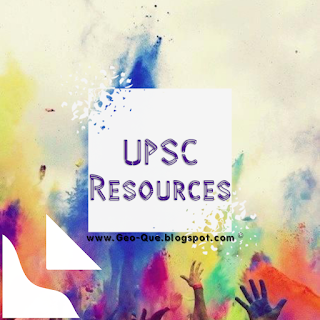Unit 3. Reading Comprehension
According to Cambridge dictionary, the word comprehension means, “the
ability to understand completely and be familiar with a situation, facts, etc.”
More preciously we can say that, comprehension means “grasping with intellect
understanding”. Reading comprehension is a crucial skill that involves
understanding, analysing and interpretation of written texts. It encompasses
several abilities in a candidate such as decoding words, understanding
vocabulary, making inferences, identifying main ideas, noting specific details,
summarizing content and applying critical thinking. Note that, Effective
reading comprehension allows individuals to grasp the meaning behind the text
and connect it with their existing knowledge. This skill is essential for
academic success as it enables students to understand and engage with complex
materials. Additionally, strong reading comprehension skills are valuable in
everyday life helping individuals make informed decisions and communicate
effectively. By practicing and enhancing these skills, readers can improve
their ability to process and retain information, ultimately leading to better
learning outcomes and a deeper appreciation of written content. So, we can say
that reading comprehension is an act of understanding a piece of the given
written text by efficiently adopting the skill of reading.
|||Types of Comprehension|||
We know that there are a number of writing styles and themes so as we have
different kinds of comprehension passages. We can classify them in four broader
categories which are as follows:-
1. Literal Comprehension: This type of comprehension involves understanding of the
explicit/direct meaning of the text. It includes identifying facts, details and
the main idea from the passage. This category is easy to answer with 100%
accuracy.
2. Inferential Comprehension: This type of comprehension requires reading between
the lines to understand the implicit meanings, making inferences and drawing
conclusions based on the given information in the passage. This section is
considered to be harder than previous one and requires your full concentration.
3. Critical Comprehension: This type of comprehension involves evaluating the
text critically, understanding the author’s purpose, tone, perspective and
assessing the validity of the arguments presented in the passage. This section
is considered to be very harder and requires your full concentration with good understanding.
4. Applied Comprehension: This type of comprehension involves applying the
information from the text to new situations or contexts and demonstrating a
deeper understanding of the material given in the passage. This section is also
considered to be harder and requires your reasoning ability other than above
mentioned skills.
|||Types of Questions|||
There are different types of questions that a comprehension follows and
these questions have different categories.
1. Main Idea Based Questions: It is also known by Main Theme or Central Idea
based questions. These types of questions ask about the primary focus or
main idea of the passage. Generally, questions are framed as, ‘Which of the
following alternatives best narrate the passage? Which of the following
sentence reflect the main idea of the passage? etc.’ In general, we see
that, answers of these types of questions are lie in first or the last
paragraph of the passage, i.e. introductory or concluding paragraphs. For this
the reading of first and the last paragraph is helpful.
2. Purpose/Tone Based Questions: It is also known as Author’s Opinion and
Attitude based questions. These questions assess the author’s main purpose
or the tone of the passage, so answers are not explicitly mentioned in the
passage. Generally, questions are frame as, ‘What is the tone of author in
third paragraph? What can be a logical solution to the issue highlighted by
author? etc.’ These questions are looks like theme or central idea based
questions but if you observe closely, you will find that, questions asked here
have a particular section of the passage rather a whole idea. That is why we
create two different sections here. These types of questions can be answers by
key words and expression of the author in respected section. Note that, if a
particular part of the passage is in the form of question, then you have to
understand the reason used by the author to explain that question in the passage.
It will help you to understand tone as well purpose. Last but importantly, you
have to focus on adverbs and adjectives as these words are indicative of the
mood and intensity of author’s thoughts.
3. Details Based Questions: It is also known by Explicit or Direct
Information based questions. These questions require recalling specific direct
details or facts mentioned in the passage. These details are easy to notice in
first reading of the passage. A
candidate must use keyword spotting skills during first reading so that he/she
will easily and quickly get answers of these questions with 100% accuracy. But
not to forget that sometimes questions are asked with negative sense by
mentioning words like – not, except, most, least, etc. So, always be careful.
Note that, if you have less remaining time then it makes sense (especially in
these types of questions) that, you first read questions and then read passage
for their answers.
4. Inference Questions: It is also known by Implicit Information based
questions. These questions ask candidates to make logical inferences based
on the information provided. That means, answers are not explicitly or directly
stated but you have to deduce it from the passage. Generally, questions are
framed as ‘Which of the following options can be best inferred? With which
of the following argument is the author most likely to agree? etc.’ For
these types of questions a candidate have to read whole passage along with
trying to understand arguments given in each paragraphs. A good understanding
of overall theme or the central idea helps to answers these questions
accurately.
5. Vocabulary Based Questions: These types of questions will test candidate’s
understanding of the meaning of words or phrases used in the passage. It is
also know by language expression based questions. Generally, questions
are framed as, ’what is synonym, antonym, error, similar, opposite, idiom,
phrases meaning, etc. of following word/phrases in the context of paragraph?’
In these questions, the aim of students should be to understand the contextual
meanings of words/phrases with respect to the passage only rather than sticking
to their dictionary meaning. And to solve these questions a second reading of
word/phrase containing part of the paragraph is helpful. And if you have
further confusion then relates it with the theme of the passage along with
using elimination technique.
Note: Never forget to read question carefully as sometimes there is a ‘not’
word written in these questions which will change whole question. This is done
to test candidate’s presence of mind and accuracy.
6. Application Based Questions: It is also known as Analogous Argument type
questions. These questions are requires to apply the information from the
passage to new scenarios or contexts. That means you have to choose option on
the line of same reasoning or logic that is given or argued in the passage.
Generally, questions are framed as, ‘Which of the following option best
represent the argument mentioned in the second paragraph? The phrases,
‘___________’, are applicable in which one of the following situations? etc.’
The best way to answer these types of questions is that first you have to read
and understand basic argument then look at options. Here you can use
elimination technique for more accuracy.
|||Right Approach/Steps to Attempt Comprehension|||
Note that these steps or the approach mentioned below are general in
nature. You have to start your preparation with them but if you have limited
time then use an appropriate method that suits your speed and accuracy. We
advise you to watch our lecture on this topic for better understanding.
Following are the seven steps for mastering this topic:-
1. Skimming and Scanning: Quickly skim the passage to get a general idea of the
content and structure. Scan for keywords and important details.
2. Active Reading: Engage with the text by underlining or highlighting key
points and asking questions while reading.
3. Identifying the Structure: Understand the structure of the passage including
the introduction, main body and conclusion. This process helps in locating information
quickly.
4. Contextual Understanding: Pay attention to the context in which words or
phrases are used to understand their meanings accurately.
5. Practice Regularly: Regular practice with diverse passages helps improve
reading speed, comprehension and the ability to tackle different types of
questions.
6. Time Management: Allocate time wisely for reading the passage and
answering the questions. Avoid spending too much time on any single question.
7. Review and Revise: After answering the questions, review your answers to
ensure they are accurate and complete.
Well, if we try to comprehend above passage then we clearly identify that
step number 1, 2, 3, 4 and 7 are talk about the methods used to solve
questions. A student must have to understand these steps and after that he/she
have to do regular practice with a good time management, as mentioned in step
number 5 and 6, respectively. And while you are trying to perform step 5, do it
with diverse passages. Now, let we understand its importance in Paper-1.
|||Importance in UGC NET Paper-1|||
All the aspiring lecturers and researchers, as you know that Paper 1 of UGC
NET JRF exam assesses the teaching and research aptitude of candidates and Unit
3 specifically focuses on comprehension skills. This unit is designed to
evaluate a candidate’s ability to understand, interpret and analyse written
texts. Generally, there are 5 questions from a paragraph in this exam and with
practice one can easily get full marks 10 out 10. This section is one of the
highest scoring units of your exam, but don't forget to maintain accuracy while
attempting questions. Well you hear that, this section is very easy but even
that most of times we do wrong answers. That happened because we take it for
granted and our accuracy level is somewhere around 50% - 60%. So, you have to
increase accuracy by first understand its basics then more and more practice.
Apart from this, some of the most significant reasons that will show you, why
this section is important are as follows:-
1. Assessment of Critical Thinking: This section tests the candidate’s ability to
think critically and analytically.
2. Evaluation of Reading Skills: This section assesses the candidate’s reading
speed, accuracy, and ability to understand complex texts.
3. Measurement of Interpretation Skills: It evaluates how well candidates can interpret and
infer information from the text.
4. Preparation for Academic Roles: Strong comprehension skills are essential for
teaching and research roles, making this section crucial for future educators
and researchers.
Conclusively, mastering comprehension skills is essential for success in
the UGC NET exam as you can get 10 out of 10 marks. Regular practice and
strategic approach are the two keys to excelling comprehension section of UGC
NET Paper 1.
Bibliography
★★★
★★★






Comments
Post a Comment